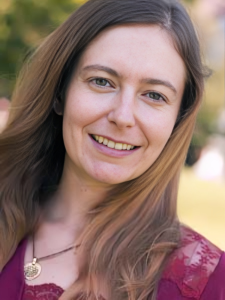What is your area of expertise and what is your research focus?
Paleoecology. I focus on understanding how climate and people have shaped ecosystems in the past and today.
How did you end up in STEM?
I was never drawn to science as a kid and never had a lifelong vision of being a scientist. I wanted to be poet and was drawn towards art. I went into college without really knowing where I wanted to take that. I was writing a lot of poetry about plants, rivers, and how roots dig into soils, and I realized that I didn't really know much about plants in order to write about them. So I decided to take a class about plants as a Gen-Ed in my second year in college. I was instantly hooked. I think I had always been taught science as very left-brained, math-heavy, abstract field that I found very difficult to identify with. In that class, I realized that science is also creative, imaginative, beautiful, and full of writing. I ended up doing research as an undergrad with the professor that taught that plant class, and I ended up declaring a biology major by the end of that semester.
What hurdles or challenges (big or small) did you find as you pursued your career in STEM? What challenges do you face today?
I have always been extremely shy. This can be a really big impediment when so much of science is necessarily communicating. Communicating is core to teaching, mentoring, research, networking, job searching, and this was all really challenging. I worked (and honestly am still working) on this by being patient with myself, having non-career related outlets, and trusting in the slow progress of experience.
Why is it important for women to be in STEM and specifically your field?
I think it's important for all different types of people to be in STEM, and women are such a huge part of that. We all see and experience the world differently, and therefore bring different perspectives. Individuals have such different interactions with culture and the natural world, and they bring that into their work by seeing problems and solutions in new ways. There is more innovation where more unique views are incorporated. Adding to that, in my specific field, I work in lots of places in the world where equality for women is still progressing. In these places, it's important for young women to have role models to see the possibilities for their own future.
What can be done to recruit more women into STEM? What advice would you give to girls and young women going into STEM? Is there anything else you would like to add on the subject of women in STEM?
I think a lot of the conversation around recruiting and retaining girls/women into STEM fields focuses around the perceptions and stereotypes of early math and science outcomes. To an extent, this makes a lot of sense, and girls obviously can be great at math. But I also think there is a conversation that can be had about the fact that careers in science are really different from perceptions of what skills are important for a scientist. For example, I wanted to be a writer and I wrote voraciously when I was a kid. I did not know that that was science. Interestingly, writing is still about 90% of my job, though it's a skillset that sometimes get lost in conversations about standardized exam scores in maths. In other words, there are so many right ways to be scientist.

